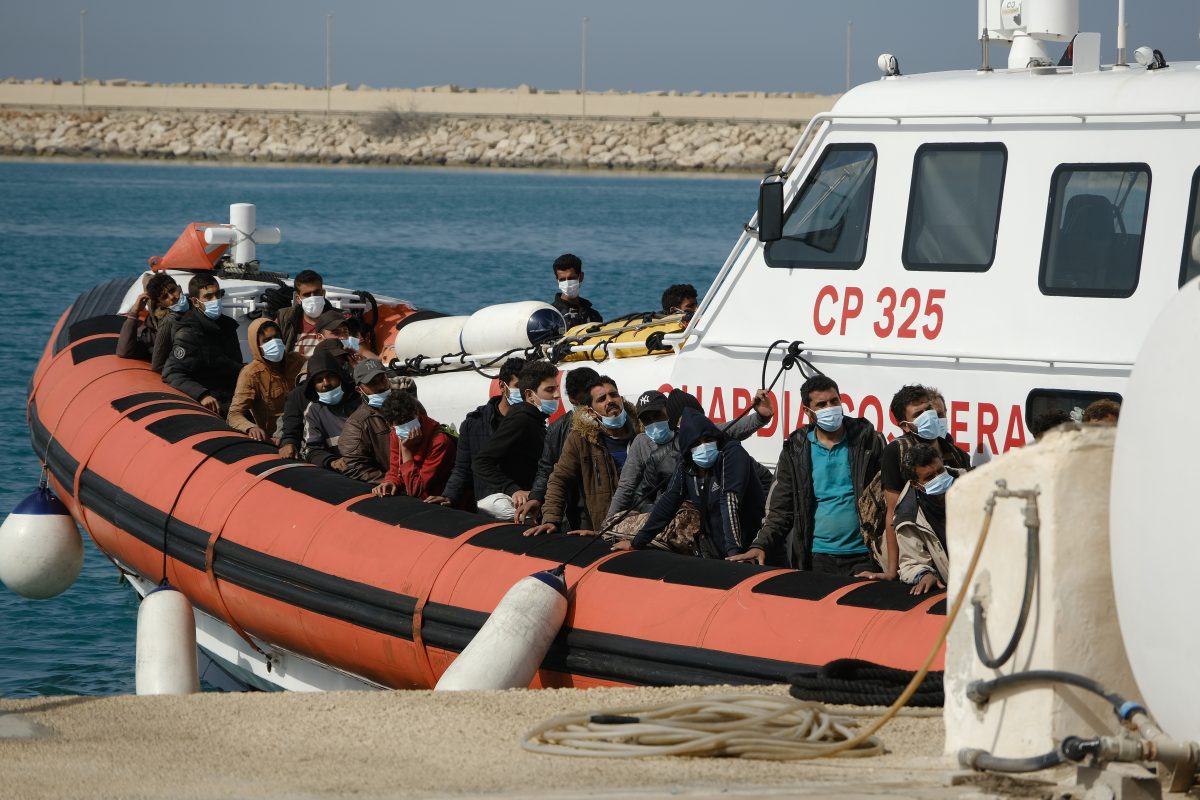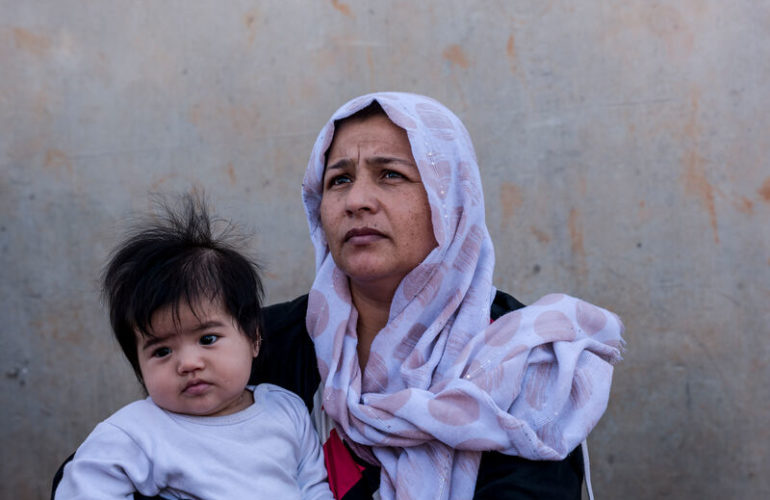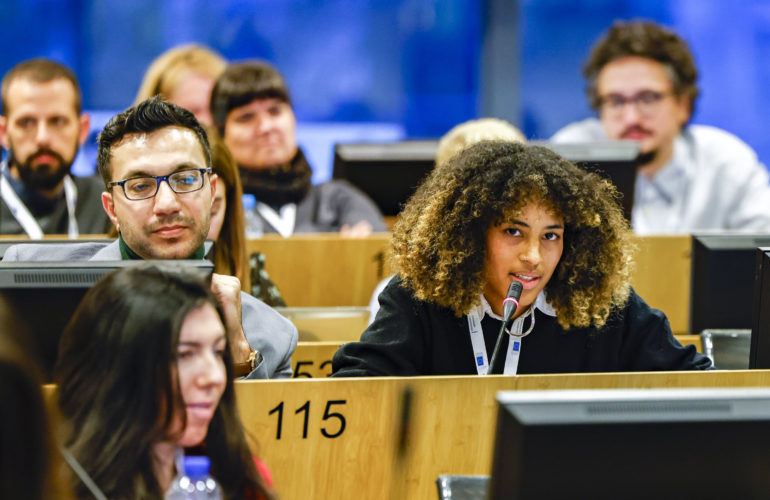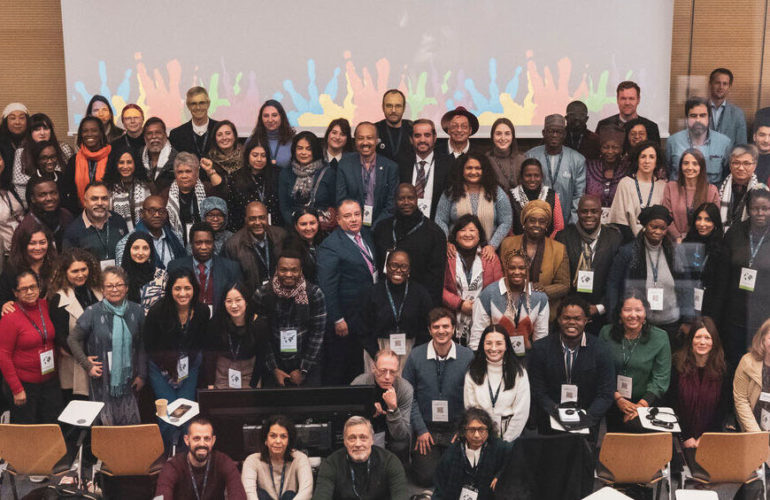"Ho paura quando sento parlare di 'accoglienza selettiva'… Se chiediamo per nostri italiani accoglienza e uguaglianza dobbiamo avere lo stesso vocabolario per i fratelli e le sorelle che vengono in Italia".https://t.co/Jcqc0g2v9G
— Migranti & Rifugiati (@M_RSezione) November 10, 2022
Italian Bishop Sounds Alarm on ‘Selective Admission’ of Migrants
Hundreds of migrants arrive every week in Italian ports seeking safe haven, but recently they have been left stranded on ships in port or turned away altogether.

On Tuesday, 8 November, Fondazione Migrantes, an agency of the Italian Bishops’ Conference dedicated to migrants and refugees, and ICMC’s national member organization from Italy, published its annual report “Italians in the World.” The report studies the decades-long phenomenon of Italian migration to all corners of the globe, for the most part in search of economic opportunity. In the days immediately prior to the report’s release, however, hundreds of migrants were denied permission to come ashore in Italy from boats that rescued them after they had been left stranded, floating on unseaworthy boats in the Mediterranean Sea.
The convergence of events led to stark contrasts being drawn between the experience of Italian emigration overseas and immigration to Italy from other parts of the world. During discussions during the report’s official release, Bishop Francesco Savino, Vice President of the Italian Bishops’ Conference (CEI) for the Southern region of Italy said, “Certain words make me worry, and I take responsibility for what I say. I’m scared, and my conscience is troubled when I hear the phrase ‘selective’ admissions. I don’t know what that adjective means. I’m likewise worried when I hear people saying that these immigrants or some of these immigrants are ‘residual cargo.’ In my opinion, what’s at stake here is the civilization of globalization. Here, mature democracy at the European level is at stake.”
Over the weekend of 5-6 November, Italian authorities had allowed two NGO ships transporting migrants to temporarily dock in the port of Catania, on the eastern coast of Sicily. After having carried out medical screenings, 144 people aboard the Humanity 1, a ship operated by SOS Humanity, a German NGO, and 357 people from aboard the Geo Barents, operated by Médecins sans Frontières (MSF), were deemed ‘vulnerable’ and allowed to disembark. Most of them were men, women and children in need of medical care. This left 35 people stranded on the Humanity 1 and 215 people on the Geo Barents, although one more person from each ship was allowed to go ashore after having collapsed upon the news they would not be permitted to access Italian territory.
Certain words make me worry…. I’m scared, and my conscience is troubled when I hear the phrase ‘selective’ admissions. I don’t know what that adjective means. I’m likewise worried when I hear people saying that these immigrants or some of these immigrants are ‘residual cargo.’
Bishop Francesco Savino
The decision to not allow all the migrants to go ashore drew near universal condemnation from human rights groups, such as Human Rights Watch, as well as other European governments. By Tuesday evening, all the remaining migrants were allowed to go ashore, for medical checks and formal processing.
Monsignor Gian Carlo Perego, President of Fondazione Migrantes, also spoke with journalists during the release of Italians in the World. “The situation is tragic and unconstitutional,” he said, adding, “It does not respect the families that are on board these ships, nor does it respect their fundamental right to assistance….”
A third ship, called Rise Above, requested permission to dock in Catania over those same several days, but having received no such clearance, the vessel continued to the port of Reggio Calabria, at the tip of Italy’s boot, where 89 migrants disembarked directly. Compared with the other two ships, the Rise Above was categorized as a ‘Search and Rescue” event, or a search for survivors when a ship is disabled at sea.
Yet a fourth ship, the Ocean Viking, was barred permission to dock in any Italian port, and continued first toward Corsica, where some people were allowed to go ashore for medical reasons. It ultimately docked days later in the French port of Toulon on Friday, 11 November. The ship had been at sea for more than three weeks seeking a safe haven.
Even the European Commission took the unusual step of issuing a statement on Wednesday 9 November, calling for the “immediate disembarkation, at the nearest place of safety, of all persons rescued and who are on board the Ocean Viking.”
“The situation onboard the vessel has reached a critical level and needs to be urgently addressed to avoid a humanitarian tragedy. The legal obligation to rescue and to ensure the safety of life at sea is clear and unequivocal, irrespective of the circumstances that lead people to be in a situation of distress,” the statement reads.
Bishop Savino also emphasized that, in the same way Italians have been welcomed overseas, the phenomenon of people arriving in Italy from other places must be recognized as the other side of the same coin.
“We absolutely cannot allow our brother and sister migrants, who are fleeing hunger [and] wars, yet again to be treated like refuse, like residual cargo, and not like people,” the bishop said.

Nancy McNally
*Communications Officer, ICMC
mcnally@icmc.net | +39 3484508118 (Rome, Italy)


